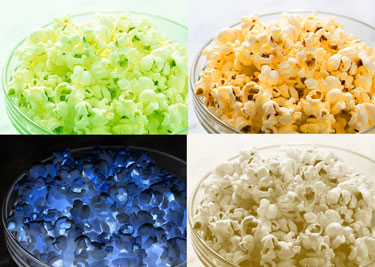Page 1 Page 2
As a child in the 1970s, I often felt out of place, as if I were a weight hung around the household’s neck. I loved sports, but I equally loved board games, comic books, literature above my reading level, and Star Wars memorabilia. My parents never discouraged these pursuits and, indeed, funded some, but they never really understood them, either. My father and I played football and baseball in our yard and hunted deer and squirrel in the local forests, but if I wanted to play Monopoly or talk in depth about Spider-Man, I was on my own. My mother seemed harried, always on the verge of some crisis, and I often felt like the cause. Like most children, I wanted my parents to love me, and I cherished our time together, but whether by necessity or choice—I did love playing by my own rules and creating narratives, long before I wrote any down—I spent much of my time alone.
We shared some things, though. My mother and I went to church every Sunday, sometimes with my father, sometimes not. We watched television together. And my father and I loved popcorn.
The 70s—deep-fried everything, indoor smoking, nonexistent seatbelt laws, Archie Bunker, Tricky Dick. In my earliest memories, we lived in a Monticello, Arkansas, apartment complex. Later, we moved to Crossett, where we stayed for most of my youth. We occupied a series of houses. Some, like the one near our rural Assembly of God church, were dilapidated and bug-infested. We had little money for upgrades. Some, like the one on West 12th Street, were modest but clean and comfortable.
Through all the moves and the attendant culling of possessions, we kept a cooking pot that might have been old when my parents were kids. It had no lid and no handles. Dark brownish stains covered the bottom half. I called it Dad’s Popcorn Pot. He ate popcorn as if it constituted a food group, and because we had no popping machine, he made it on the stovetop. He would pour some oil in the pot, dump in loose kernels from a bag, and turn on the heat. He covered the pot with a dishtowel and shook it back and forth across the burner. Soon, a distinct sound filled the house—the tink of kernels smacking into metal, like coins in a vending machine. The scent of fresh-popped corn combined with his acrid, stale cigarette smoke that never seemed to dissipate, simultaneously whetting my appetite and turning my stomach.
When the popcorn was done, he dumped in some salt. Then he would shake it all again before pouring the finished product into a bowl. He salted it so heavily that I would not have been surprised to see a deer break into the house and lick the bowl clean, so I always needed a glass of soda or sweet tea. I sat next to him on the sofa, where we would watch Monday Night Football or a Movie of the Week. We scarfed popcorn like gluttons. We even ate the half-popped kernels. We seldom talked. Just a father and son hanging out, Mom joining us whenever she felt like it.
Something about the way my father made popcorn seemed intimate, even artistic—the effort involved, so much different than ordering a box at the drive-in or buying a bag at a ballgame; the precision of pouring the oil without any formal measurement; the uniform but unconsciously determined number of salt pours; the hands-on distribution of heat. To my grade-school eyes, it seemed like earned, even sacred, knowledge. Perhaps I just wanted to emulate Dad—that familiar yet mysterious man who worked for much of the day and sent me to bed early on school nights—but I saw more wizardry in his popcorn-making than in my mother’s far more intricate and labor-intensive cooking. According to the gender roles that society was teaching me, the kitchen was, after all, where she was supposed to be, and her secrets were someone else’s to learn. But Dad standing over the stove, making something that he would share with me—that was special.
I learned about the connection between gender and food from my community, from television and movies, from certain books and magazines. (A copy of, say, The Feminine Mystique would have been as common in 1970s Crossett as photographic evidence of Bigfoot.) It was all bullshit, of course. Patriarchy and sexism have greatly damaged this world, and they can and should be resisted. Still, the reductive and sometimes dangerous idea that boys should emulate their fathers probably helped my Dad and me—an average athlete, a bookworm—be closer than we otherwise might have been.
But things change.
In the 80s, we bought a small hot-air popper, and, after a brief period when Dad used it, I took charge. I began by washing my hands and dumping the loose kernels into a reservoir. Then I put some stick butter in a metal tray that fit on top of the machine. As the air heated, the butter melted. I poured the butter and salt into a big bowl. Then I dumped the popcorn on top and mixed it all with my hands. We ate in our den in front of a new television. We watched ESPN, cable channels like USA and TBS, and movies on HBO. Alone, I devoured videos on MTV.
Page 1 Page 2
Pages: 1 2


